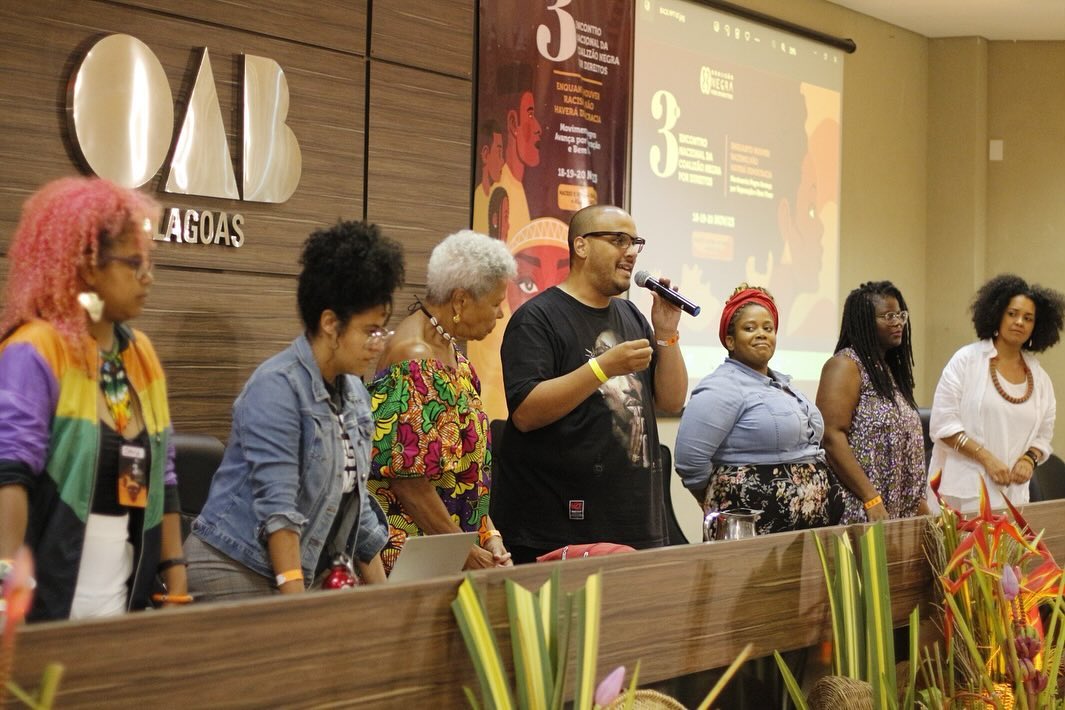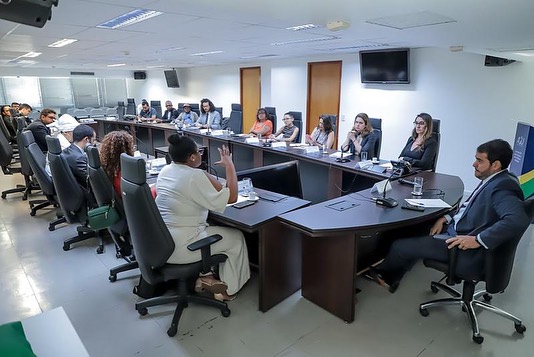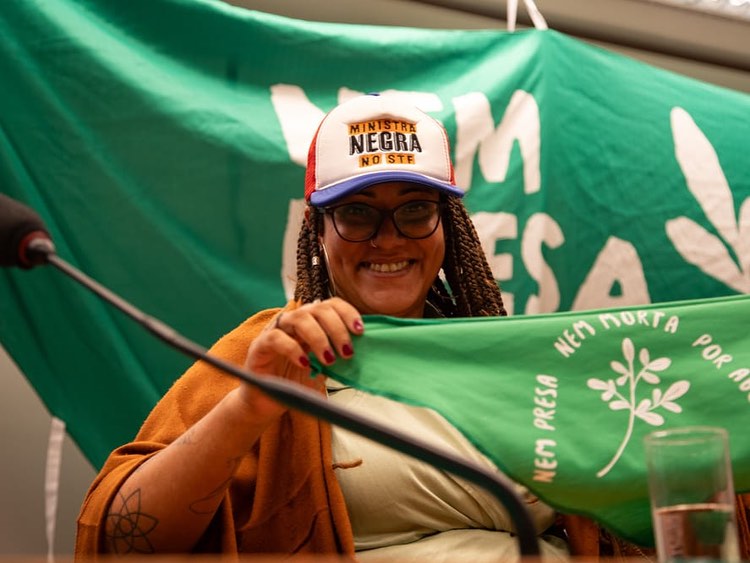Discover the Coalizão Negra por Direitos, which brings together almost 300 organizations in the fight for black people
The organization emerged to combat racism and defend the black population from violence and injustice


The Coalizão Negra por Direitos (Black Coalition for Rights, in English) is today the main national articulation of the black movement in Brazil. It has 293 black organizations and collectives, from the five regions of the country. The objective is to strengthen the fight against racial inequalities in the country.
The organization emerged in February 2019, at the beginning of Jair Bolsonaro’s government, to fight against the expansion of the exclusive of illegality. The proposal, made by the then Minister of Justice, Sérgio Moro, increased the possibilities of self-defence for police officers, which could deepen the genocide of black men and women in Brazil.
“Police action in our country is deeply marked by racial profiling, so the anti-crime package proposed by Moro, in fact, was an anti-black package”, explains Mônica Oliveira, an activist with the Rede de Mulheres Negras de Pernambuco and member of the Secretaria Operativa Nacional of Coalizão Negra por Direitos (Black Coalition for Rights).
Thus, Uneafro, alongside other organizations in São Paulo, began a national effort to bring together black movements from various parts of the country and advocate against those measures. The organizations made collective complaints to the United Nations (UN), the Inter-American Commission on Human Rights and the European Parliament.
“At the same time, we met with different parliamentarians in the Congresso Nacional, especially from the left camp, but not only, demanding a reaction of refusal to the Moro package”, says Mônica.
The struggle of the black movement
In November 2019, after intense movement to block the anti-crime package, this alliance held an international seminar with around 150 Brazilian and foreign leaders from countries such as South Africa, Colombia, the United States and the United Kingdom. At the seminar, the formal creation of the Coalizão Negra por Direitos (Black Coalition for Rights) was announced, which is governed by a charter of principles and agenda of struggles.
Among the principles are the defense of historical reparation to the black Brazilian population; the fight against racism and genocide of the black population; the implementation of redistributive social justice and restorative racial justice; defending the legacy of black women’s struggle in Brazil, among others.
The fighting agenda includes political action to confront neoliberal policies; for the eradication of poverty; against precarious work; for the rights and preservation of black childhood; for the defense of quilombola territories and a dozen other directives.
The organization third national meeting took place this year, during black consciousness week, in Maceió (AL), with the theme “As long as there is racism, there will be no democracy: the Black Movement advances for Reparation and Good Living!”
Coalizão Negra por Direitos
An operational secretariat, made up of 23 organizations, is responsible for the progress of the Coalizão. This secretariat meets weekly, on Monday evenings. The plenary sessions, a time in which any member organization can participate, take place every Friday at 10 am.
All meetings are held online. In addition, there are fixed working groups linked to the legal field, communication and international relations, and thematic ones, such as the GT on the right to the city and environmental racism and the GT on quotas, among others.
“We have a very demanding operation. Two meetings a week is enough, on the other hand, the racial issue is intense. Racism affects all dimensions of a black person’s life, so we are organizing ourselves more and more to be able to meet as many of the demands as possible”, says Mônica.


For the right to fight
According to Mônica Oliveira, the Coalizão Negra por Direitos (Black Coalition for Rights) was one of the first organizations to present a request for impeachment against former president Jair Bolsonaro. “The discussion about democracy took on great importance during the Bolsonaro government, especially for us, the black population, because this is a country that has never experienced a full democracy”, she points out.
In the 2022 election process, the organization implemented a national strategy called Quilombo in Parliaments to increase the presence of representatives of the black movement in state and federal chambers. As a result, the number of black candidates elected increased by almost 10% compared to the 2018 election.
“We are not simply working to have a black bench, but a black movement bench, because there are right-wing black people, in the centre, everywhere. We wanted a bench committed to combating racism and the Coalizão’s fighting agendas,” she highlights.
Still in the 2022 elections, according to the activist, Lula’s victory brought back the possibility of political confrontation without fear of the violence that was established against social movements during the Temer and Bolsonaro governments. “We rescue the right to fight!”


Black woman in the STF
For Mônica, there have been advances in the political scene that are important to consider: “We never had, in previous governments, a black presence in the first and second echelon like there is in this government”.
She is referring to the staff of the Minister of Culture, Margareth Menezes, the Minister of Racial Equality, Anielle Franco, the Minister of Environment and Climate Change, Marina Silva and the Minister of Human Rights, Silvio Almeida.
“But in addition to them, there are also black people who are great technical staff, in institutions such as IPEA, state banks, some local authorities and also in the national directorates and secretariats of ministries… This is important to recognize. On the other hand, it is still insufficient.”
This year, the Coalizão has campaigned intensely around the appointment of a black minister to the STF. “The judiciary is the only one of the three powers that do not have any social control, and with a much lower black presence than in the executive and legislative branches. So, for us, this is a very important action”, says Mônica.


Pele Alvo
According to the Pele Alvo report, from the Rede de Observatórios da Segurança, 66% of victims resulting from State intervention were black people in 2022. In other words, every four hours a black person was killed by the police last year.
The data shows that the maintenance of the war on drugs policy is what has caused the most deaths and mass incarceration of the black population. For experts, there is a strategy that associates illegal practices with black bodies, neutralizing the participation of these individuals in society.
According to the report, the national public security policy criminalizes a specific profile, such as colonial heritage. It is a profile that is currently associated with poverty, which means that security policy functions as social control.
Want to support this cause?
The Coalizão Negra por Direitos (Black Coalition for Rights) is a partnership with organisations nationwide and is open to new participants and donations. To learn more, visit the website or follow social media on Instagram, Facebook and Linkedin.



